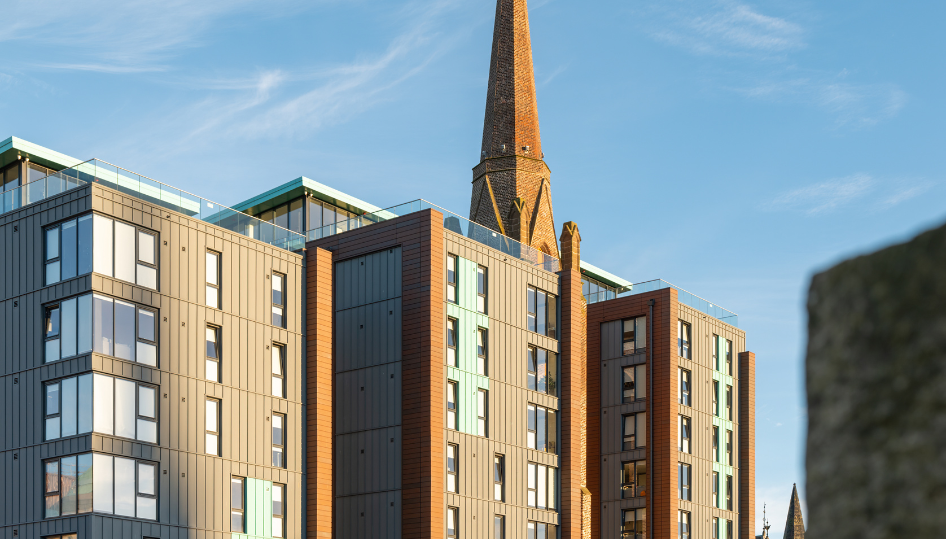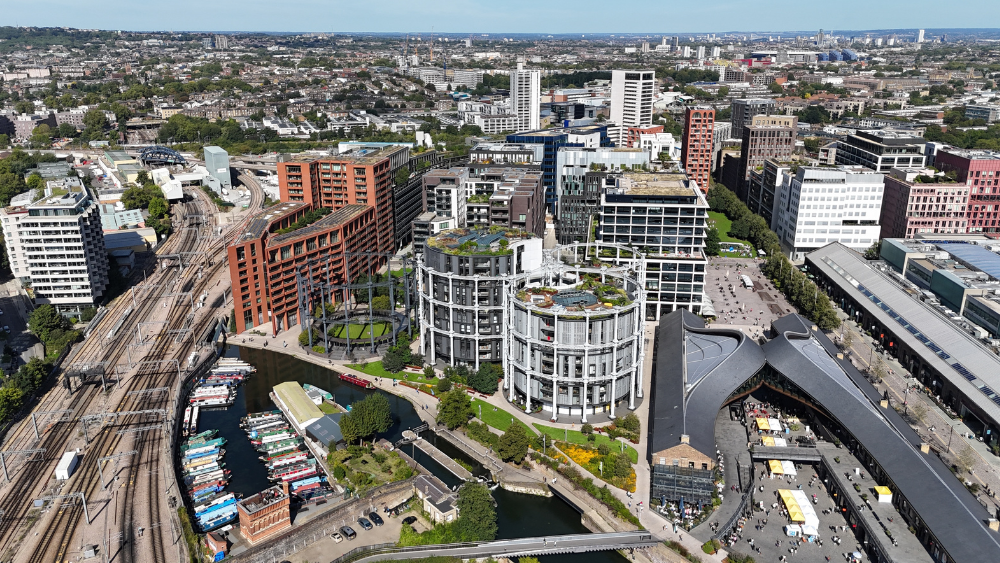The UK Property Industry
Our industry
From the homes we live in, to the spaces where we learn, work and relax, property is an essential part of modern life.
Our industry invests in communities across the UK, providing a wide range of high-quality homes, workplaces, health, education, and warehousing facilities that people and businesses rely on every day.
Property Investment
Who are property investors?
Property investors pool together money from institutional investors - such as pension funds and insurance companies - and invest this into towns and cities across the country.
Did you know that most people with a pension fund or life insurance policy are ultimately property investors? As much as £250bn of commercial property is owned by the general public!
Are there different types of property investors?
All property investors are broadly aiming to achieve the same thing – to deliver returns for their investors by owning and operating property. However, there are different ways of categorising property investors:
Whether they buy property or lend to others who buy
Whether they buy property or lend to others who buy
Equity investors use their capital to buy property and get a return from rents and gains on sale. Debt investors use their capital to lend to equity investors. Equity investment has the potential to deliver higher returns, but is usually riskier than debt investment.
How much risk they are happy to take
How much risk they are happy to take
Owning an office building in the middle of a large city is a very different proposition to owning a shop on the high street of a small town, with a different set of risks and rewards. The higher the risk, the higher the potential return. Property investors will typically own property within a certain risk banding or will make sure that their investment portfolio as a whole meets that risk banding.
What type of property they invest in
What type of property they invest in
Some property investors specialise in particular types of assets (for example retail, offices, logistics and healthcare). Other property investors take a more generalist approach, which means they may be more insulated against structural economic changes, but may lack the institutional expertise of specialists.
Whether they are companies or funds
Whether they are companies or funds
Property investors use a variety of different legal entities to own property depending on who their investors are and what their investment aims may be, including:
- Limited companies
- Real Estate Investment Funds (REITs)
- Open-ended property funds
- Closed-ended property funds
Property Development
Who are property developers?
Property developers come in varying shapes and sizes and deliver almost all of the buildings and places we use in our everyday lives. This can include, homes, offices, shops, cinemas, hotels, industrial warehousing, GP surgeries and hospitals, theatres and museums, but also green and public spaces, transport and road infrastructure, and much more.
From small property developers who buy, renovate, and sell individual buildings, to much larger property developers who identify suitable land on which to design and deliver projects of significant scale and community value, there is a shared aim. The aim is to build, and in many instances, operate buildings and their surrounding public areas to improve people’s wellbeing and contribute to the growth of the economy.
Property development is not limited to private companies or individuals, the UK Government and local authorities also often act as developers.
What are the risks of property development?
Property developers play a crucial role in creating new buildings, but they take on a lot of risk in doing so. At every stage of the development cycle there is a risk that a project could get delayed or derailed.
Whether it’s the risk of failing to obtain formal permission to build, a construction contractor going bust, or economic downturns impacting the willingness of occupiers to rent a building, the risks associated with a process that can sometimes span decades must be weighed against the potential returns.
What do property developers do?
Whether a developer is building a single home or a large mixed-use neighbourhood, they will often go through a number of distinct phases, as set out below.
Not all developers will go through every phase and some projects will include additional phases. These can include:
Acquiring land and due diligence
Acquiring land and due diligence
The first phase will typically involve a developer identifying a piece of suitable vacant or occupied land with the capacity to deliver their idea. This involves extensive research to thoroughly understand the site and its surroundings. Developers will also review relevant local and national policies to establish the suitability of the site and likelihood of securing permission.
Engaging with local authorities – pre-application advice
Engaging with local authorities – pre-application advice
Developers will generally engage with local authorities at a very early stage about the suitability of their idea through a process known as ‘pre-application’ advice. This helps developers make sure their plans support the local authority’s ambitions for the social, economic and environmental betterment of an area and that local planning policy is fully taken into account.
Design and scoping
Design and scoping
In order to obtain legal permission to carry out a development, the developer must submit a formal planning application to the relevant local authority. The submission needs to include details on a range of issues, ranging from the design and scale of the proposed development to the specific details associated with its construction and operation.
This phase will also consider impacts of a given development on the existing community and any new infrastructure (from roads and bus stops to schools and GP surgeries) needed to support the development. Most developers will proactively engage with local residents, businesses and other stakeholders to incorporate and prioritise their views.
Construction
Construction
The construction of any given project will involve a long supply chain of businesses depending on the scale and type of a development. This will include businesses that provide the raw materials; the contractors and sub-contractors that turn these materials into buildings and services; and the array of administrative and assessment workers that ensure the process operates efficiently and safely.
Operation
Operation
Not all developers continue to own and operate their buildings once they are finished. Those that do might fall into several categories and own one or more types of property. These developers are united in their ambitions to operate, manage and maintain their buildings, public spaces, and associated infrastructure in a manner that is sustainable and promotes the health, wellbeing and economic productivity of the communities they serve. This includes a vast array of operational priorities including property maintenance, the provision of amenities and working with occupiers.
Property Management
Who are property managers?
Property managers operate across all types of UK property – from residential property such as the private rented sector (PRS) and student accommodation, to commercial properties such as offices, shopping centres and high street shops. They also operate across the public, private and social sectors.
Typically, property managers work for or on behalf of property owners, though many occupier businesses with large property portfolios (such as retailers or hospitality businesses) will often have in-house property expertise. They may be employed directly by a property-owning business, but it is more common for them to work for a specialist property management service provider, which range from small agencies serving a specific town or city to large multinational organisations.
Property managers also build on data and insights to provide greater insight into property operations, which can be used to compare different buildings and inform owners’ decisions to invest in cost-effective upgrades and future investment into other properties.







